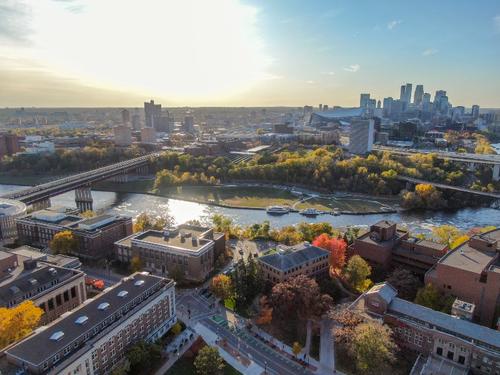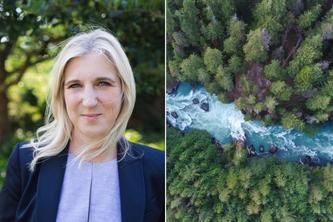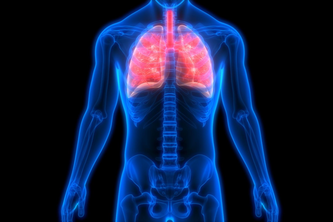University of Minnesota Celebrates Its Role in GREATER MSP Partnership Proposal to Create a Local Bioinnovation Ecosystem

The University of Minnesota has a key role in the GREATER MSP Partnership proposal that was selected as one of the 60 finalists for grants funded by the $1 billion federal “Build Back Better Regional Challenge” this week, University officials said today. The GREATER MSP Partnership involves more than 50 partner organizations and seeks to accelerate job growth and racial equity by growing Minnesota’s bio-innovation sector.
“Elevating a thriving bio-innovation ecosystem is a core priority of the University of Minnesota through MPact 2025, our systemwide strategic plan,” said University of Minnesota President Joan Gabel. “We are proud to bring this important work to this transformational coalition, which is positioned to catalyze greater impact, growth and equity across our broader community and beyond.”
The grants that will be awarded through the Challenge, which is a linchpin of the American Rescue Plan enacted in March, are designed to accelerate economic recovery from the COVID-19 pandemic and to create industry clusters that will have the resilience to weather future economic shocks.
If the partnership’s proposal is selected and funded by the US Economic Development Administration, the University of Minnesota anticipates having a key role in three of the partnership’s eight proposed projects:
Higher Education Bio Curricula Alignment and Development. This project will build and strengthen the bio-innovation enterprise from certificate programs through graduate education. With over 30 colleges, 13 universities, and 59 campuses, the University of Minnesota, Minnesota State and the University of St. Thomas will partner to build education capacity and strengthen the bio-innovation workforce across the state. This program will involve students and professionals from multiple academic disciplines in a hybrid of curricular, experiential and skill-development activities.
University of Minnesota Foundation Innovation and Business Acceleration Building. This project, led by the University of Minnesota Foundation, will construct a new innovation and business acceleration building in a master-planned district on the eastern edge of the East Bank campus. It is planned as the first building within a mixed-use innovation district development that will create an integrated community of partners in research, discovery and entrepreneurship.
Agriculture Innovation Scaling and Market Development. This project will develop the support infrastructure and commercialization pathways needed to drive innovation in sustainably-produced crops for food production. The initiative will include development of new cropping systems with specific environmental benefits, collaborative development of value chains, scaling support, and data-driven analytics and decision support. Investments will be used to build a strategic mix of facilities, equipment, services and technical expertise. The UMN Forever Green Initiative will team with MBold and the Agricultural Utilization Research Institute for an initial project to scale and develop agriculture markets for new crops and production systems, potentially around sustainable perennial crops such as Kernza, which University of Minnesota researchers helped develop.
The University also expects opportunities to involve students, faculty and staff in the partnership’s other five projects, including a Bio Maker Space in the Cedar Riverside neighborhood adjoining the University’s West Bank campus, the expansion of the independent University Enterprise Laboratories at the border of Minneapolis and St. Paul, and Fairview’s proposed bioinnovation hub in Downtown St. Paul.
As a finalist for Phase 2, the Greater MSP Partnership has up to $500,000 available to create a full-fledged, technical proposal around the eight proposed projects by March 15, 2022. Ultimately, the US EDA is expected to provide grants of between $25 million-$100 million to 20-30 regions to build and scale industry clusters that create transformational economic change.
-30-
- Categories:
- Science and Technology
- Entrepreneurship





